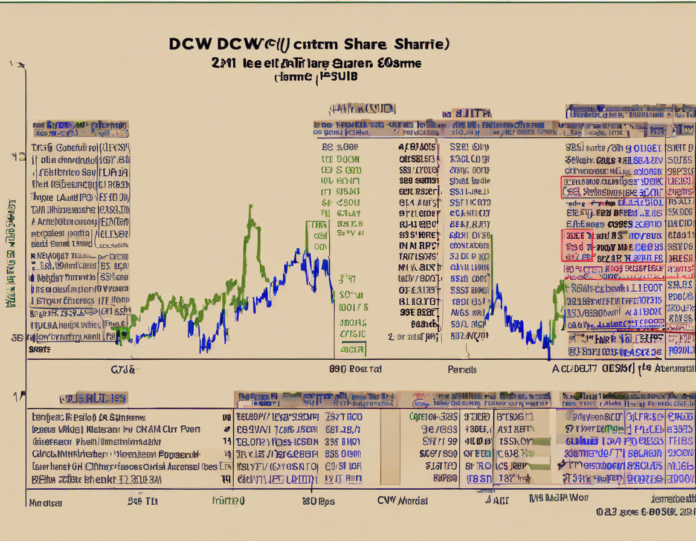The stock market is a dynamic and complex system where traders buy and sell shares of publicly traded companies. Share price trends play a crucial role in the decision-making process of investors, as they reflect the performance and potential of a company. In this article, we will delve into the world of share price trends, specifically examining the case of DCW – a fictional company for illustrative purposes.
Understanding Share Price Trends
What Are Share Price Trends?
- Share price trends refer to the historical movement of a company’s stock price over time.
- They indicate whether a stock has been increasing, decreasing, or stagnating in value.
- Analyzing trends helps investors make informed decisions about buying, selling, or holding stocks.
Factors Influencing Share Price Trends
1. Economic Indicators:
- Market Conditions: Economic factors such as interest rates, inflation, and unemployment can influence share prices.
- GDP Growth: Companies tend to perform better in a growing economy, leading to higher stock prices.
2. Company Performance:
- Revenue and Earnings: Strong financial performance can boost a company’s stock price.
- Product Development: Launching successful products can lead to increased investor confidence.
3. Industry Trends:
- Competitive Landscape: Changes in the industry landscape can affect share prices.
- Regulatory Environment: Government regulations may impact certain industries, influencing stock prices.
Analyzing DCW Share Price Trends
Historical Trends
- DCW’s stock price has shown volatility over the past year, with fluctuations in response to market and company-specific factors.
- Key Events: Earnings reports, product launches, or industry developments may have influenced DCW’s share price.
Technical Analysis
- Moving Averages: 50-day and 200-day moving averages can help identify long-term trends in DCW’s stock price.
- Resistance and Support Levels: These levels indicate potential price barriers where the stock may see increased buying or selling pressure.
Fundamental Analysis
- PE Ratio: Evaluating DCW’s price-to-earnings ratio can provide insights into its valuation compared to peers.
- Dividend Yields: For investors seeking income, DCW’s dividend yield is a key metric to consider.
Interpreting Share Price Trends
Bullish Trends
- Rising Prices: A sustained uptrend in DCW’s stock price may indicate bullish sentiment among investors.
- Volume Confirmation: Increasing trading volumes can support the validity of a bullish trend.
Bearish Trends
- Declining Prices: A prolonged downtrend in DCW’s stock price suggests bearish sentiment in the market.
- Technical Indicators: Signals such as moving average crossovers or RSI readings below 30 can confirm a bearish trend.
Conclusion
In conclusion, analyzing share price trends is an essential aspect of stock market investing. By understanding the factors influencing trends, conducting technical and fundamental analysis, and interpreting bullish and bearish signals, investors can make informed decisions regarding their investment strategies. Keep track of DCW’s share price to apply these concepts in real-time scenarios and enhance your investing knowledge.
FAQs (Frequently Asked Questions)
1. What is the significance of share price trends for investors?
Share price trends provide insights into a company’s performance and market sentiment, helping investors make informed decisions.
2. How can economic indicators impact share price trends?
Economic indicators such as GDP growth, interest rates, and inflation can influence market conditions, subsequently affecting share prices.
3. What are some key technical indicators used to analyze share price trends?
Moving averages, resistance and support levels, and technical patterns are commonly used by investors for analyzing share price trends.
4. How do bullish and bearish trends differ in share price analysis?
Bullish trends signify rising prices and positive market sentiment, while bearish trends indicate falling prices and negative market sentiment.
5. What role does company performance play in share price trends?
Strong financial performance, product launches, and industry developments can impact a company’s stock price and influence share price trends.


Recent comments